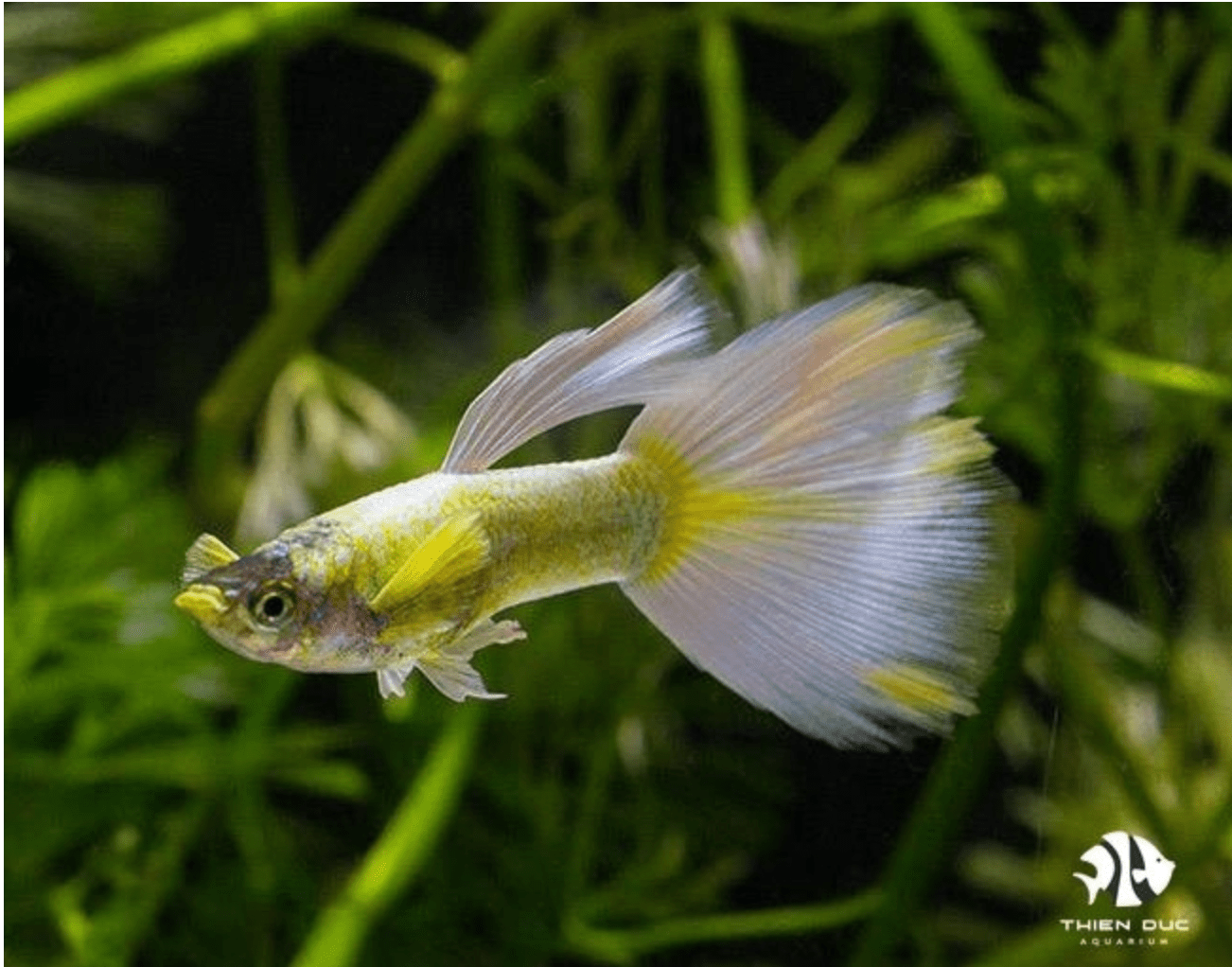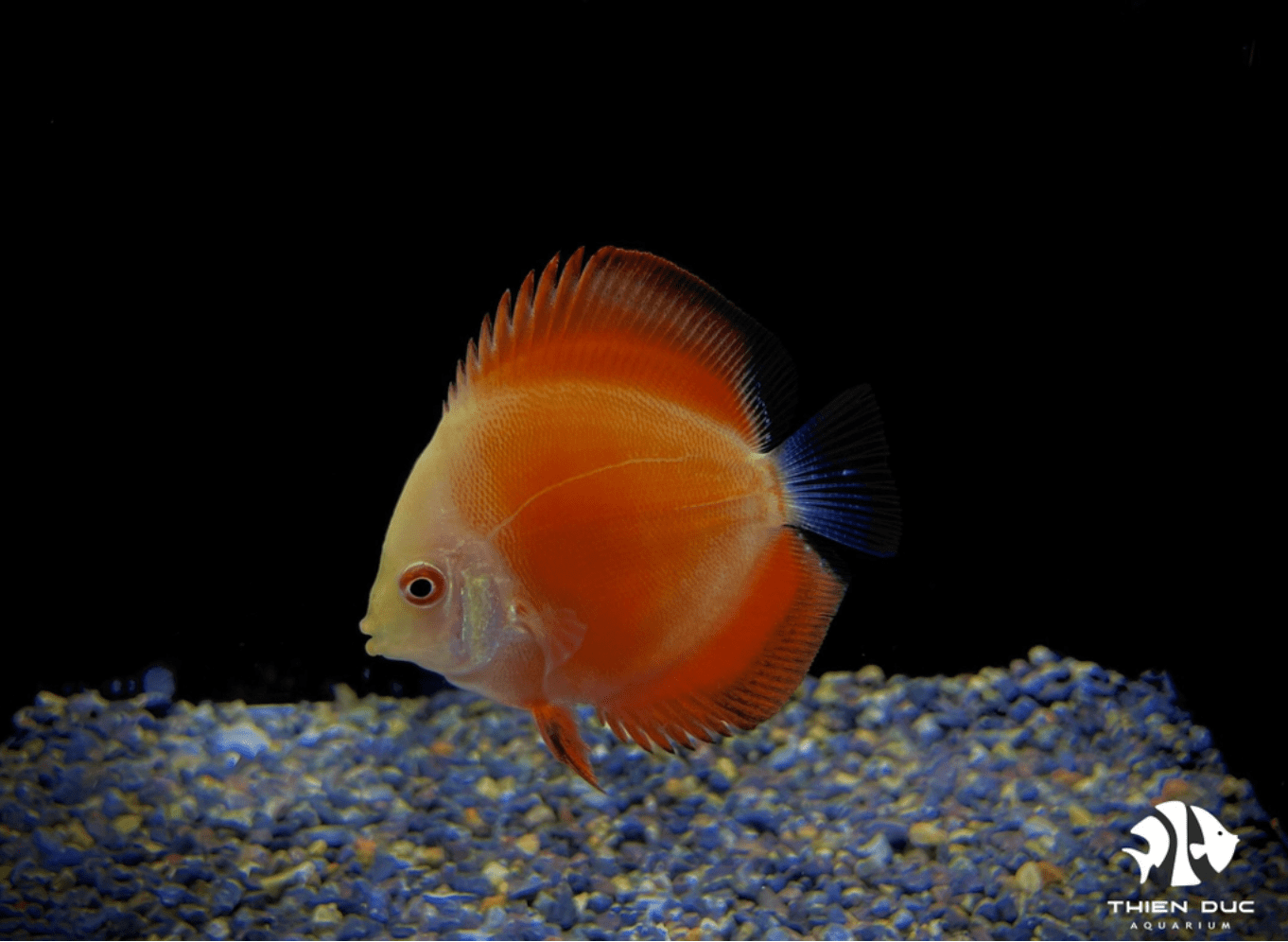Discus Fish Health: Expert Care Tips for Maximum Vitality
Often hailed as the 'King of the Aquarium,' the Discus fish captivates with its majestic grace and stunning colors. This beauty, however, comes with a reputation for sensitivity, making their care seem daunting. At ThienDuc Aquarium, we believe the secret to success isn't luck; it's knowledge. This guide distills our decade of expertise to demystify the art of maintaining peak discus fish health. By mastering the core principles of their care, you can ensure your aquatic royalty not only survives but thrives, displaying their full breathtaking vitality.
The Foundation of Health: Mastering Your Discus Water Parameters
The single most critical factor influencing discus fish health is the quality of their water. These fish originate from the soft, warm, and acidic waters of the Amazon River basin, and replicating these conditions is paramount. While tank-bred varieties can be more adaptable, stability is non-negotiable.

-
Temperature Stability: Discus thrive in warmer water than most tropical fish, requiring a consistent temperature between 82−86°F (28−30°C). Fluctuations are a major source of stress, which can weaken their immune system and make them susceptible to disease. Investing in a high-quality, reliable heater and a digital thermometer is essential for maintaining this stable environment.
-
Pristine Water Chemistry: The invisible toxins that build up in an aquarium are lethal to discus. A fully cycled tank is mandatory, meaning your biological filter can instantly convert toxic compounds. Your goal parameters ought to be:
-
Ammonia: ppm
-
Nitrite: 0 ppm
-
Nitrate: Below 20 ppm Regular testing with a quality liquid test kit is crucial for monitoring these levels. High nitrates, while less toxic than ammonia or nitrite, cause long-term stress that undermines good discus fish health.
-
-
pH and Water Hardness: Aim for soft, slightly acidic water with a stable pH between 6.0 and 6.8. Sudden shifts in pH are extremely dangerous. Using Reverse Osmosis (RO) water remineralized to a specific General Hardness (GH) is a common practice among serious hobbyists to achieve this stability.
-
The Water Change Regimen: There is no substitute for clean water. Large and frequent water changes are the cornerstone of discus keeping. A schedule of changing 50% of the water every other day, or at a minimum twice a week, is recommended. This practice dilutes nitrates, replenishes essential trace elements, and removes hormones that can stunt growth, directly contributing to superior discus fish health.
Fueling Vitality: Nutrition and Feeding Strategies for Discus
A proper diet is the fuel that powers a discus's immune system, vibrant coloration, and active behavior. In the wild, their diet is varied, and we must replicate this diversity in the aquarium to ensure complete nutrition and long-term vitality. A monotonous diet can lead to deficiencies that compromise discus fish health.
-
Variety is Key: Offer a rotating menu of high-quality foods. This not only provides a broader range of nutrients but also keeps the fish engaged and eager to eat.
-
High-Protein Core Foods: The bulk of their diet should consist of high-protein options. Excellent choices include frozen bloodworms, brine shrimp, mysis shrimp, and specially formulated beefheart mixes. A well-prepared beefheart blend can be fantastic for promoting growth and size.
-
Premium Prepared Foods: Supplement their diet with premium, discus-specific flakes or pellets. These are often fortified with vitamins, minerals, and color-enhancing ingredients that are essential for well-rounded discus fish health. Soak dry foods in a cup of tank water before feeding to prevent bloating.
-
Feeding Frequency and Portion Control: How you feed is as important as what you feed. Young, growing discus should be fed small amounts 3-5 times per day. Adults can eat one or two times a day. Don't give them more than two or three minutes to eat. Overfeeding is a common mistake that fouls the water, leading to spikes in ammonia and nitrates that are detrimental to discus fish health.
Proactive Care: A Guide to Preventing Common Discus Diseases
The best way to treat disease is to prevent it from ever taking hold. This requires a proactive approach centered on keen observation and strict protocols. Understanding the difference between a thriving fish and a stressed one is the first step in safeguarding their well-being.

Which Symptoms Indicate a Healthy Discus?
Establishing a visual baseline of a perfectly healthy fish allows you to spot trouble early. These are the signs of excellent discus fish health:
-
Vibrant, bright coloration without any dark or muted patches.
-
They are actively swimming, often as a group, and are curious about their surroundings.
-
Fins are held fully open and erect, not clamped against the body.
-
The eyes are alert, bright, and clear.
-
They exhibit a strong feeding response, rushing to the front of the tank for food.
Early Warning Signs: How to Spot an Ailing Discus
Catching problems early dramatically increases the chances of successful treatment. Be vigilant for these common signs of compromised discus fish health:
-
The body becomes dark or black.
-
Hiding in a corner or behind decor and isolating from the group.
-
Fins are clamped tightly against the body.
-
Breathing is rapid, or the fish is seen gasping at the surface.
-
Feces are white, long, and stringy, which often indicates internal parasites.
-
A complete refusal to eat.
The Golden Rule: Why You Must Quarantine Discus Fish
The single most effective disease prevention strategy is quarantine. A separate quarantine tank is not a luxury; it's an essential piece of equipment for any serious aquarist. Every new fish, regardless of its source, can potentially introduce devastating pathogens into your established display tank.

The proper procedure involves isolating all new arrivals in a separate tank for 4-6 weeks. This period allows you to observe the fish for any signs of illness and treat them if necessary, without risking the discus fish health of your entire collection. This simple act of patience is the best insurance policy you can have.
Conclusion: Mastering Your Discus Fish Health Journey
Achieving excellent discus fish health is not about luck, but about commitment and consistency. By mastering the three pillars of care—immaculate water, a high-quality varied diet, and proactive observation and prevention—you provide an environment where these magnificent fish can truly flourish. The reward for your diligence is a breathtaking display of color and grace that is unmatched in the freshwater aquarium hobby. For hobbyists seeking a strong, healthy start with robust, expertly-raised fish, THIENDUC AQUARIUM provides a foundation of quality you can trust to begin your journey with confidence. Taking these steps will ensure the long-term discus fish health and vitality of your prized collection.
Contact Information
For premium quality freshwater and marine ornamental fish, contact the experts at THIENDUC AQUARIUM.
-
Address: 57 Le Thi Sieng, Tan Thong Hoi, Cu Chi, Ho Chi Minh City, Viet Nam
-
Mobile: +84903912501
-
Office: +84982577871
-
Email: thien@thienducaquarium.com










